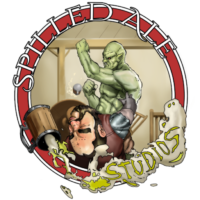It is often said that “there are no new stories”. This is an issue which has been analysed to death by far smarter people than I, so let’s just say that I agree. No matter how unique and special a story might seem, it will still fit into an archetype of which there have been many examples before, and many if not all of the story’s parts will have parallels elsewhere in fiction.
As a creative, this doesn’t worry me. The way I see it, there are still ways to put together oft-explored ideas to make a whole that isn’t quite like what has come before. Additionally, a familiar idea is one that requires less explanation. All audiences will intuitively grasp the hero’s journey and similar narrative structures, so prevalent are they in fiction, film, and other creative media.
Just as a writer can use the audience’s familiarity with various structures and common tropes to signpost certain things to their readers or even subvert their expectations, we can use similar tools in our campaigns. We want our PCs to have those Big Damn Heroes moments. The party are almost certainly either a Ragtag Bunch of Misfits, True Companions, or The Squad. It would be an unusual campaign indeed that doesn’t involve one or more Plot Devices.
As DMs we really don’t need to fear tropes, or try to avoid them. Players are comfortable with tropes. Therefore if we embrace them, and use them smartly, we can build a world that our players intuitively understand. Subverting tropes should be uncommon, because if the players cannot rely on their intuitive knowledge of how the fictional world should work, they also cannot hope to grasp your intentions for the plot. They’ll just bounce around your campaign world, lost and confused, while the plot moves on without them. You’ll end up having to railroad them back in the right direction not because they’re choosing to deliberately avoid the path but because they cannot see the signposts. But we can subvert tropes if we do it rarely and carefully. When we do choose to do so it has meaning precisely because the audience (our players) expected some other outcome. It stands out, and that makes your players sit up and take notice that this right here is important.
We can also use tropes as a tool to help build characters, particularly with new players or those who find coming up with concepts more difficult. We might list a few tropes to give their imagination a kickstart, such as The Black Mage, The Medic, or The Reluctant Warrior. Hell, we could even just let them loose on TV Tropes and see what they come up with on their own. Another approach might be to ask the player what characters from literature, film, or TV they like, and whether they’d like to a play a character that is similar.
It’s easy to be tempted to roll our eyes when a player comes to us with a concept that bears a marked similarity to a popular anime character, or the hero of a fantasy novel. I once received an application who was exactly Eragon, to the point where his written backstory was basically plagiarism. Obviously it’s fine to reject a carbon copy, but my recommendation is to first talk to the player about your concerns and work with them to build on the concept until it has something new to offer. Think of the character they’re basing their idea on as a template, a starting point. You and the player can trim something here, bolt on something new there, until the character is familiar enough to be comfortable for the player but different enough to bring something worthwhile to the game.
Tropes could also become a team building tool. It’s very common for characters to be built in isolation. How often have you been part of a game where two or more players turn up to the table with characters with overlapping shticks? This is why I would always recommend a “session 0”, in which characters are created in a collaborative environment. As part of that, you might ask your players to think not just about what race and class they want to be, but also which member of a team trope. If you happen to have five players, perfect—why not consider the Five Man Band? If you have three characters, consider selecting one or more Power Trio subtropes. Or there’s the Four Temperament Ensemble.
For DMs, knowledge of tropes can actually be a useful analytical tool for your game. I guarantee you’re using them even if you’re not consciously aware of it. More awareness of tropes and the way they fit together might make you despair that your story isn’t original, but as I’ve mentioned that’s an impossible ask anyway. Embrace the tropes in your game, use them as foundational building blocks, and learn how to combine and subvert them more effectively. In closing, I’ll just repeat that tropes aren’t necessarily a bad thing. They’re a tool in your toolbox, like any other, and if you’re going to be using them subconsciously anyway you might as well embrace them!

